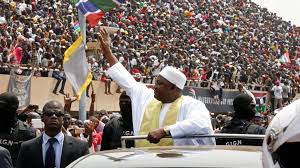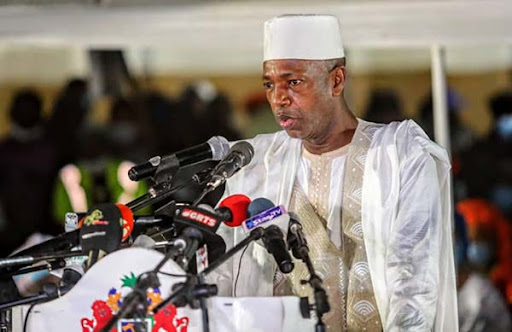By: Fatou Krubally
The Chairman of the People’s Democratic Organization for Independence and Socialism (PDOIS), Halifa Sallah, has expressed concerns over President Adama Barrow and his Cabinet’s recent meeting with the Banjul Muslim elders, arguing that such religious gatherings should not be used as platforms for political discourse.
Sallah, in a statement, acknowledged the right of both state leaders and religious figures to express their views but questioned whether the meeting upheld the appropriate boundaries between politics and faith-based engagement.
“The State executive and religious leaders have the right to express themselves, but the way political representatives should address such gatherings was not adhered to,” he remarked.
He highlighted that the tradition of Banjul Muslim elders, visiting the head of state after Eid prayers dates back to colonial times, when citizens had no power to determine who governed them. During that era, engaging with governors and chiefs was the only means to voice community concerns. However, Sallah noted that even after independence, many still perceive the presidency in a monarchical fashion, resulting in a continued practice of seeking favours rather than engaging in constructive dialogue.
Reflecting on the role of the executive, Sallah argued that since the democratic transition in 2016, such meetings should serve as opportunities for the government to listen and address pressing national issues rather than being used to settle political scores.
“One would have expected the executive to use this platform to listen to concerns and provide concrete assurances,” he stated.
He suggested that religious and civic groups should coordinate their messages before meeting the executive, ensuring a clear, unified dialogue, adding that instead of leveraging these engagements for political messaging, the government should use them to foster national unity.
“The platform of the Banjul Muslim Elders should be utilized for better purposes than allowing the executive to express opinions on national matters without giving others with differing views the chance to respond,” he said.
Sallah advised that future interactions between the State and religious groups should be approached with more caution and respect for their intended purpose. He proposed that the Banjul Muslim elders could modernize the tradition by inviting Christian counterparts, creating an interfaith dialogue that addresses concerns from all faith communities.
“I listened carefully to every word spoken by President Barrow and his ministers. Many comments, which I will address at a later press conference, were not appropriate for such a solemn religious occasion,” he asserted.
In conclusion, Sallah urged that future meetings of this nature be preceded by proper consultations to ensure they promote harmony rather than division.
“To avoid scenarios that create more disharmony than national cohesion, such gatherings should be carefully planned and structured,” he emphasized.





